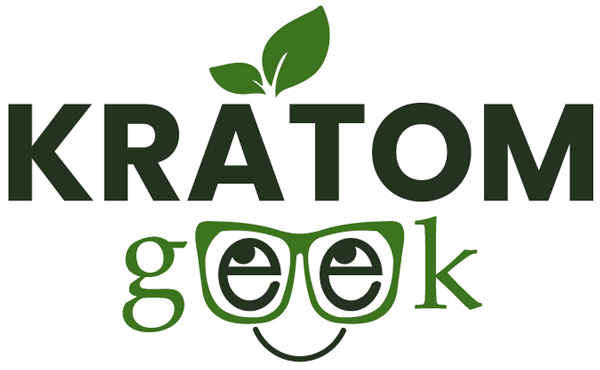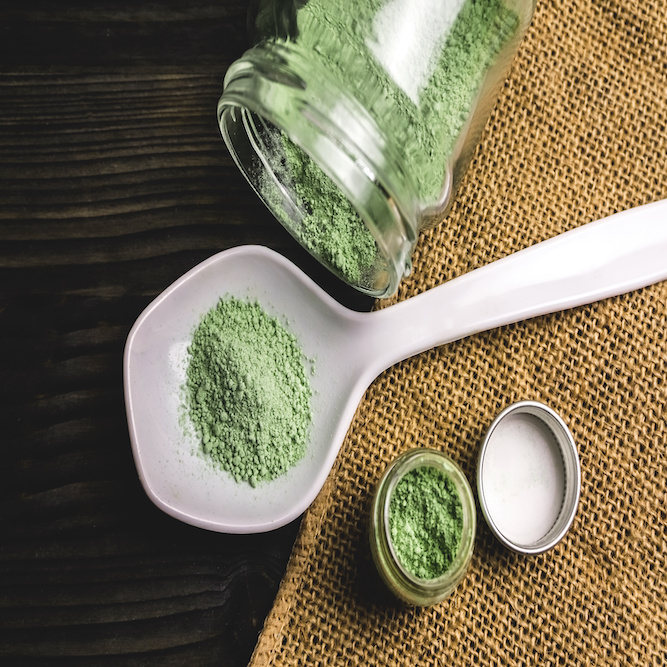Mitragyna speciosa, more commonly known as kratom, is a plant that grows in the tropical rainforests of Southeast Asia. Almost all the kratom products found on the US market originate from Indonesia. The country also exports a vast amount of coffee beans throughout the world. For those of you unaware, kratom and coffee both belong to the same family of plants. Likewise, a tea created from each plant material produces similar chemical reactions in our bodies whenever consumed.
Each drink provides the user with a slight stimulating effect. So people typically consume the beverages early in the morning. That helps provide them an extra boost of energy to fight off the state of drowsiness. And that effectively helps them awaken from their slumber. Some people also continue to consume these beverages throughout the day. The drinks produce additional energetic jolts of stamina while working.
Those animated feelings that the alkaloids produce in the consumers are sought after by the user. And it’s the traditional reason why people drink either beverage. Over in Indonesia, they consume kratom to stimulate their minds and bodies before working in the fields. And here in the US, Americans also drink coffee for its stimulating properties before heading off to work. With the beverages so similar, lots of American coffee drinkers started consuming kratom as well.
Essentially, kratom is an alternative tea that can easily replace coffee in a person’s diet. So nobody ever thought our federal government agencies would try to ban the plant product.
The Drug Enforcement Agency Tried to Schedule Kratom
Since the kratom plant has desirable properties, it was inevitable that the Drug Enforcement Agency (DEA) would notice, making a call on the subject. But as a mild stimulant—related to the coffee plant, most people assumed the supplement would remain safe. However, the DEA shocked the world a few years ago with a different approach.
On August 30th, 2016, the DEA announced to the world through a press release that the federal agency intended to schedule kratom as an illicit substance, placing kratom on its Scheduled List of Narcotics. To add insult to injury, the DEA was not only planning to register the supplement as a drug, but the agency was also going to make it a Schedule I substance, which would have placed kratom beside a dangerous drug like heroin.
But the DEA would meet resistance for its plan. Large groups of kratom advocates united in the District of Columbia to protest the affair. Then, shortly afterward, a bipartisan group of Congress called upon the DEA to halt the agency’s plan to classify kratom as an illegal drug. Together, both political parties secured the signatures of 51 elected representatives on a letter addressed to the acting administrator of the DEA. Within the letter, Congress asked him to overrule the agency’s decision. With the combined pressure, the DEA backed away from its proposal to make kratom illegal.
Where Does Congress Stand on the Kratom Issue?
The attempted 2016 kratom ban wasn’t the last time elected officials stood up for kratom consumers. Shortly after, government officials championed kratom rights again. At the end of 2017, members of Congress had two Dear Colleague letters circulating the US House of Representatives, asking fellow legislators to stand against the rejuvenated federal push against kratom. And despite the growing divide of party politics during the Trump administration, the kratom concern was met head-on with a bipartisan effort once again. Representatives addressed a letter to the DEA, asking the agency to employ all the scientific data before deciding to push forward with a kratom ban. And another letter was addressed to the FDA, saying the agency has shown insufficient evidence to issue an action against kratom.
Currently, kratom remains federally legal. However, the threat of a kratom ban always looms over the industry. All it would take is enough elected representatives to agree on banning the supplement for it to occur. Then it’s game over for the entire kratom-consuming populace. And some US citizens realize that possibility more so than others. Those individuals live in a state where local governments have already performed the unthinkable.
Places in the US Where Kratom Is Banned
Having kratom legal on the federal level doesn’t necessarily mean that kratom is also legal in your state. Each state has jurisdiction over some of the laws of the land. Also, there are legal channels that give local municipalities the power to create a kratom ban. In the current political landscape, we have six states in the US that have legislated kratom bans through the government.
The Six States Where Kratom Is Banned
- Alabama: This state outlawed kratom use back in 2016—the same year the DEA had an ongoing campaign to schedule kratom.
- Arkansas: In early 2016, the Department of Health followed through with a ban on kratom in the state.
- Indiana: The state labeled the primary alkaloids of kratom synthetic drugs back in 2014. It’s an oxymoronic label if one ever existed.
- Rhode Island: In 2017, the Director of Health requested for the Secretary of State to add kratom alkaloids to the Controlled Substances Act without legislative approval. The ban remains in effect to this day.
- Vermont: The state made both of the main molecular compounds found in kratom restricted drugs in 2017.
- Wisconsin: This state made kratom an illegal substance back in 2013, making it the first state to ban kratom.
While those six states are the only ones that have a statewide kratom ban on the books, that doesn’t mean that kratom is legal everywhere else in the US. A few municipalities have taken it upon themselves to ban kratom in their jurisdictions, too. Here are some additional states with cities/counties that have created kratom bans.
- California
- Colorado
- Florida
- Illinois
- Mississippi
- New Hampshire
Just because a kratom ban exists today in your state or city doesn’t mean that those laws cannot change in the future. There have been actual instances where a kratom ban has gotten reversed through political measures. There lies the beauty of our nation. Living in a representative republic, we have the capabilities of overturning unjust laws with the assistance of elected leaders.
The Kratom Fight Is a Continual One
There are only a handful of states and cities that have banned kratom. But the political climate of today proves legal precedent can change at a moment’s notice. Political agendas are fluid. All it takes is enough pressure to be exerted on specific elected officials to make their social perspective shift with the wind. So we all need to continue to apply pressure on our state representatives. We must make sure our leaders are doing the right thing for their citizens.
For those with extra time on their hands, you can always volunteer to assist with local kratom advocacy groups. But if your time is limited (as is the case with most people nowadays), then you can always donate to those groups instead. The American Kratom Association (AKA) has local chapters across the nation. Check out their website to learn more.
Still, there is another way you can help fight for kratom legalization without spending any money. And the action is not time-consuming, either. All you have to do to help the movement is to tell your friends, relatives, or acquaintances how using kratom helped change your life for the better.
Just broach the subject whenever the topic presents itself. Besides providing social proof for its effectiveness, your testimony may convince someone else to give the it a try. Once that happens, the kratom advocacy garners one additional voice to speak out in support of the plant. That matters most. We must all work together to keep kratom legal.






